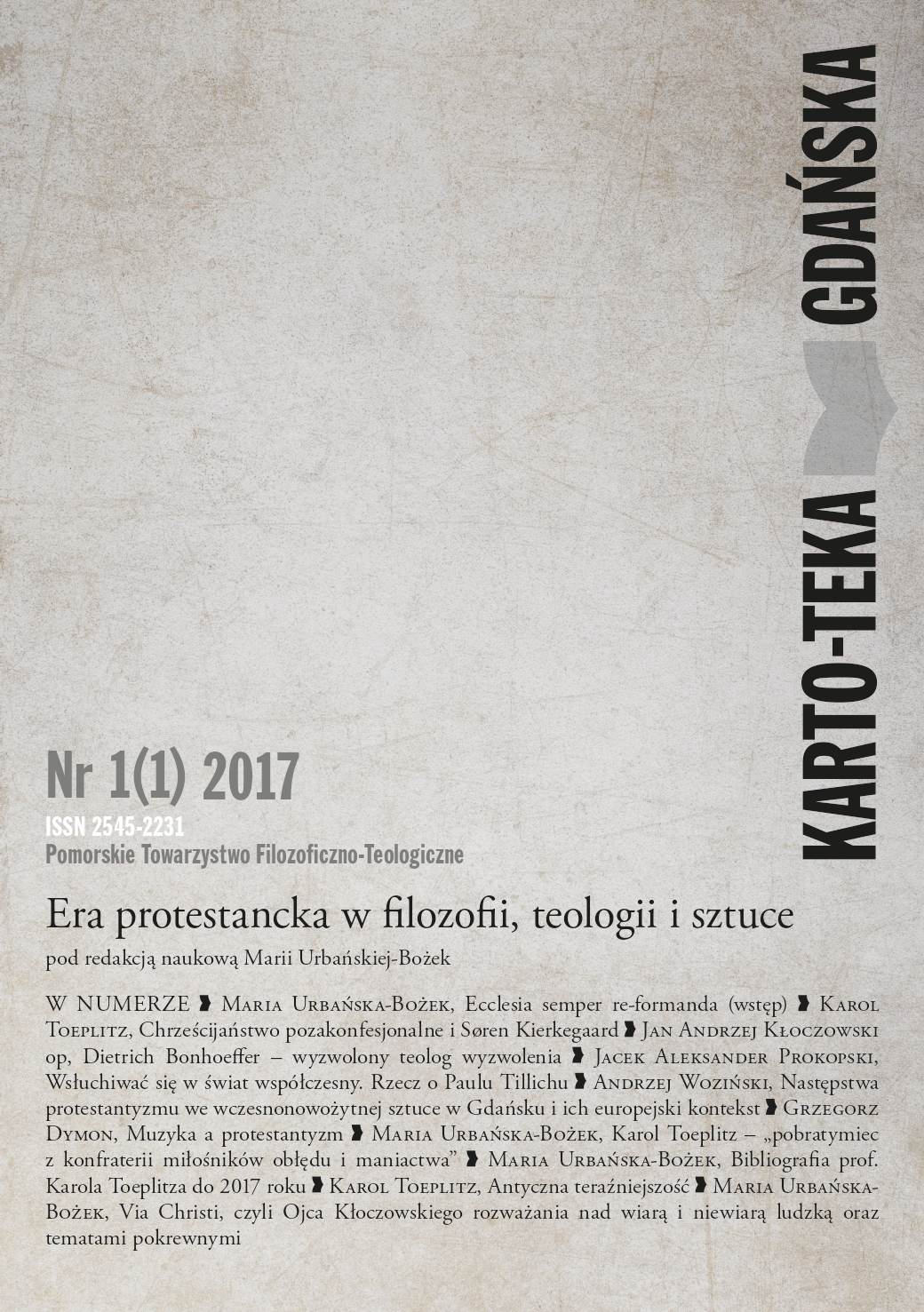Muzyka a protestantyzm
Słowa kluczowe:
muzyka protestancka, kościoły ewangelickie w Gdańsku, Grzegorz Dymon, reformacja, chorał protestancki, chorał gregoriański, Marcin Luter, Pomorze, rozwój muzyki protestanckiej, carillonAbstrakt
Various religious locations have directly influenced the expansion of musical inspiration. Mainly due to the worldview perceived through the prism of faith and the teaching of the Church.
The composers from Gdansk, so unpopular but incredibly valuable in terms of having created the history of over a thousand-year-old city, have taken advantage of everyday life and have transferred their vision of the spiritual sphere of a human being’s lives to the art they have been creating. Music, the most beautiful of the arts, has been closely related to this spiritual sphere and has been thus perceived as a gift from God and thus should render the glory of God. The Reformation of the Church has resulted in divergent directions of artistic visions and has thus directly influenced the variety of created compositions. Thus Martin Luther’s recommendations have given the opportunity for the dynamic musical development as well as have greatly accelerated it, and so thanks to the rivalry of musicians and the support of the city counsellors, music has thrived significantly.
The increasing influence of the modernism, of the Western culture, the intensification of the instrumentalism and the multi-faceted nature of works have consolidated the local musical trends so that they have become the regional – European - ones, and have thus enabled a certain unification of the art as far as both the secular and religious aspects are concerned.
The euphoria accompanying the performances has led from the musical wealth to the crucial role of the organist, and the plane of the people’s musical involvement has become the site of their enormous activity. Certainly, if it hadn’t been for the Reformation, the music would not have achieved such perfection.

 Uniwersyteckie Czasopisma Naukowe
Uniwersyteckie Czasopisma Naukowe

